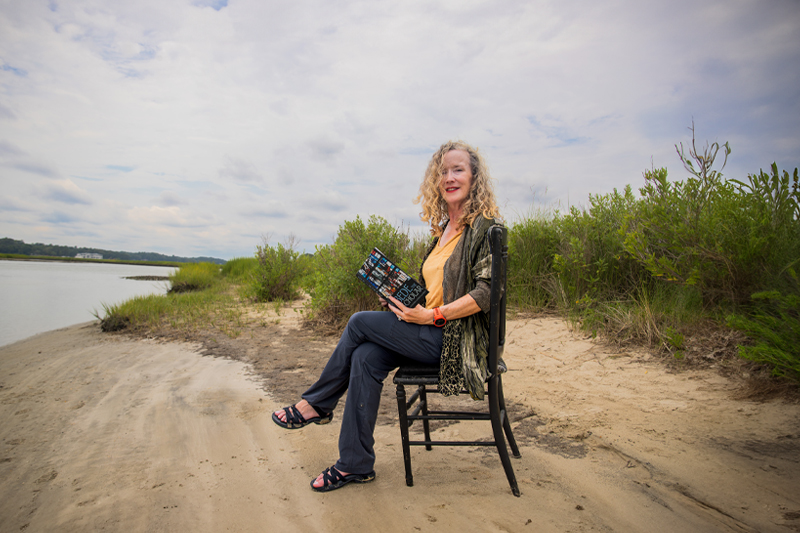
Above: Prof. Sharon Rowley studies Bede's perceptions of the natural world. In addition to writing about 'early science,' he may have measured the tides in the north of England.
Read time:
Miracle stories are curious things. They’re supposed to be wondrous, to inspire awe and conversion. But because English professor Dr. Sharon Rowley and other modern scholars approach historical documents from an objective and scientific perspective, accounts of medieval miracles raise all kinds of questions about fact and fiction, belief and knowledge.
Bede (672-735), an English monk, author and scholar, wrote books that transmitted Classical ideas about the natural world and astronomy to early medieval audiences. Bede not only added new observations, but also corrected and improved our knowledge of the natural world with mathematical precision. Bede is also known as “The Father of English History,” because his most famous work, the History of the English Church and People, presents chronology and evidence in ways that seem almost modern. This makes the fact that Bede’s History also includes dozens of miracle stories especially puzzling.
Rowley’s new environmental humanities project will examine the miracle stories Bede includes in his History in relation to his scientific writings. She has earned a new opportunity to explore Bede’s miracle stories involving earth, water, air and fire in relation to medieval perceptions of the natural world.
Rowley has been awarded a Research Fellowship at the Institute of English Studies (IES) at the University of London. Over six months beginning in Fall 2024, while on research leave from CNU, she will complete her work on an edition of the Old English translation of Bede’s History, and begin a new project on elemental miracles. Rowley is an Old and Middle English language and literature scholar and teaches an array of courses in that area, as well as on Arthurian romance, dream visions, textual culture and early modern drama.
As a Fellow at IES, Rowley will continue to develop what could prove to be a groundbreaking study of Bede’s writings while focusing on elemental miracles, participating in conferences and contributing to the scholarly environment. “I’m grateful for this fantastic opportunity to explore how mundane substances and media such as earth, water, wood, and bone, became symbolic objects that articulated the interconnections between the earthly and the divine,” Rowley said.
When her fellowship concludes, Rowley will return to her position as Director of Medieval and Early Modern Studies at Christopher Newport and help students understand the long ago and still illuminating tangle of the spiritual and the material.